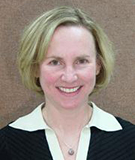Need for a better microscope prompts launch of a startup
will.ferguson
Washington State University physicist Matthew McCluskey wasn’t trying to invent the next generation of material characterization microscopes, but when he couldn’t get the results he wanted from the best on the market, he improvised.
Four years later, McCluskey launched Klar Scientific, a startup designing and manufacturing an innovative, new instrument that collects more information about materials in less time and at a lower cost than what is currently on the market. The company is the recipient of a $210,000 National Science Foundation Small Business Innovation Research grant to bring the affordable and easy to use microscope to market.



